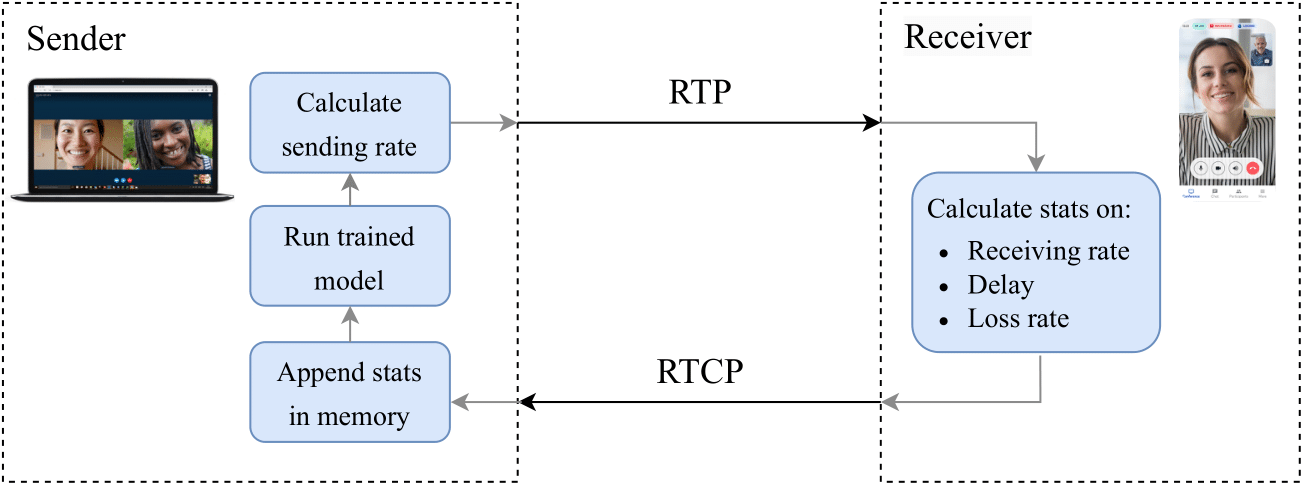ReCoCo is a Reinforcement-learning based Congestion Control algorithm for Real-time applications (video conferencing, cloud gaming).
The system at runtime:
The system at training time:
Here is an outline of the main scripts used to train and test the various models:
-
test_env_github: employs testing - takes an input argument - model name from folder /final_models
-
conf_dict_new: configure all parameters to start training (e.g. number of timesteps, algorithm, saving paths and other parameters)
-
trace_lists: specifies different groupings of traces in lists for easier use in the other scripts (e.g. norway_traces, ghent_traces, low_bandwidth_traces)
-
train_new_data: reads the configuration from conf_dict_new and employs training
-
test_env_non_testable_traces: test models without running GCC in parallel, for the traces that do not support GCC
-
rtc_env: RL environment (exactly following Gym guidelines)
First, create a virtual environment in Python and install the packages using the requirements.txt file. Then you can test the various models from the folder final_models by running test_env_github.py with the name of the model as an argument. This tests the model on all available traces in the new_data folder. To specify a specific list of traces to test on, modify the traces parameter in test_env_github.py. You can use predefined trace lists from trace_lists.py.
The output is a pickle file that is saved in output_github, which contains a dictionary with data such as bandwidth prediction, sending rate, receiving rate, delay, loss ratio and reward, for each time step in the simulation.
If you use this code, please cite the following paper:
@inproceedings{markudova2023recoco,
title={ReCoCo: Reinforcement learning-based Congestion control for Real-time applications},
author={Markudova, Dena and Meo, Michela},
booktitle={2023 IEEE 24th International Conference on High Performance Switching and Routing (HPSR)},
pages={68--74},
year={2023},
organization={IEEE}
}

